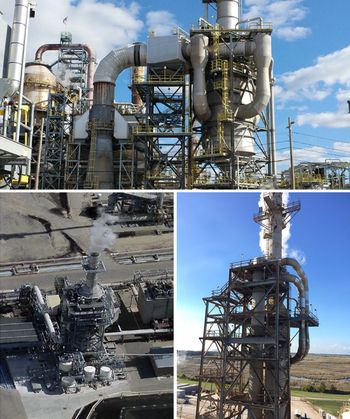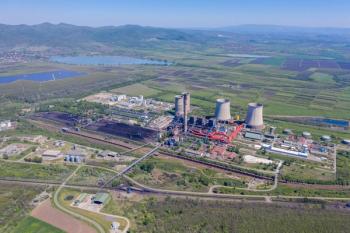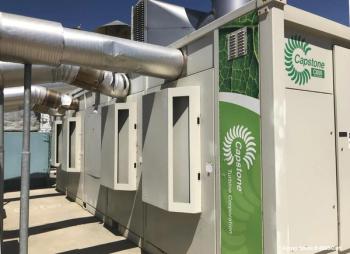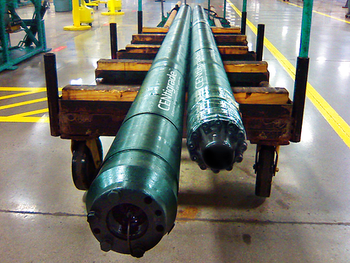
US nuclear projects mothballed; Areva pulls out of Virginia plant
Even as Germany, Japan, Switzerland and other nations move to abandon existing and planned nuclear reactors, the United States is on a path to see at best only a small handful of already planned, government-backed reactor projects proceed, a group of experts said today. While reversals for the nuclear power industry overseas have attracted substantial media attention, relatively little focus has been paid to such developments in the U.S. as the mothballing of the South Texas Project in Texas (once a prime candidate for a federal loan guarantee), the Calvert Cliffs-3 reactor expansion in Maryland (another federal loan guarantee candidate despite major complications presented by foreign ownership issues), and the decision this week by the French industry leader Areva to halt production at a Virginia reactor component plant - a direct result of the turndown in the industry's prospects.
The industry's situation is now such that even the controversial Obama Administration proposal for $36 billion in Treasury-backed loan guarantees for new reactors likely would be a case of throwing good money after bad, according to the experts.
Peter Bradford, former member of the United States Nuclear Regulatory Commission, former chair of the New York and Maine utility regulatory commissions, and currently adjunct professor at Vermont Law School on "Nuclear Power and Public Policy," said: "Even before Fukushima, events over the last two years had amply demonstrated that new nuclear power was a bad investment in the U.S. Cost estimates had continued to rise while those of alternatives fell. Wall Street rating agencies were uniformly skeptical. Constellation pulled out of Calvert Cliffs last October. Exelon did the same for its proposed Texas reactors, and did so in the context of a review of its low carbon options that showed new nuclear to be far more expensive than most of its other choices.
Bradford added: "Since Fukushima, NRG has pulled the plug on South Texas and the County of Fresno in California has reconsidered its support for new nuclear units there. If the past is any guide, there will soon appear stories about how the U.S. nuclear renaissance was well underway before being stalled by the one-of-a-kind nuclear accident at Fukushima. Just as we are often wrongly told that the first nuclear construction wave in the U.S. ended because of the accident at Three Mile Island, industry spokespeople will use Fukushima to obscure the fact that new nuclear has been priced out of the market in the U.S. for many years.Under these circumstances, adding additional exposure to American taxpayers in the form of nuclear loan guarantees can't be justified."
Paul Fremont, managing director of equity research, Jefferies & Company, Inc., said: "The estimated cost of building a new nuclear plant varies widely from $4,500 per KW estimated by NRG for its cancelled project in Texas to $6,350 per KW estimated by Southern Company for its project in Georgia. Today, nuclear represents the highest cost option to construct compared to traditional technologies including coal at an estimated cost of $2,000-$3,000 per KW and gas combined cycle units at $950 per KW. According to Jefferies analysis, the best economic alternative for new build today is gas based on forward prices ranging from $4.40 expected in 2011 to $6.00 in 2015."
Fremont added: "In March 2010, Jefferies published a report on nuclear new build titled 'Sympathy for the Devil' arguing that absent U.S. government subsidies, gas prices would need to be $8.50 per MCF or higher to earn reasonable (10 percent) returns on new nuclear investment. Including all of the government subsidies such as a loan guarantee, production tax credits available for the first eight years of operation and accelerated depreciation, the price of gas would need to be $6.66 per thousand cubic feet (MCF) to earn a 10 percent return. If the forward prices for gas are correct, it makes more sense to invest in a new gas plant rather than nuclear new build even factoring in current subsidies available from the U.S. government."
David Freeman, engineer, and former head of both the Tennessee Valley Authority and the Sacramento Municipal Utility District, said: "The energy policy debate in America was woefully incomplete until the nuclear disaster occurred in Japan. The public wasn't informed that nuclear power plants hold awesome radioactive threats that cause cancer, threats that are here and now, and very real. The federal government and the nuclear lobby are advancing these radioactive factories as a clean and safe solution to climate change. The push for a revival of nuclear power gives new meaning to the old phrase 'pick your poison.' The nuclear crowd is urging that we replace carbon dioxide with plutonium. We must learn the fundamental lesson from the Fukushima disaster that it is time to turn away from this extraordinarily dangerous technology."
Newsletter
Power your knowledge with the latest in turbine technology, engineering advances, and energy solutions—subscribe to Turbomachinery International today.




